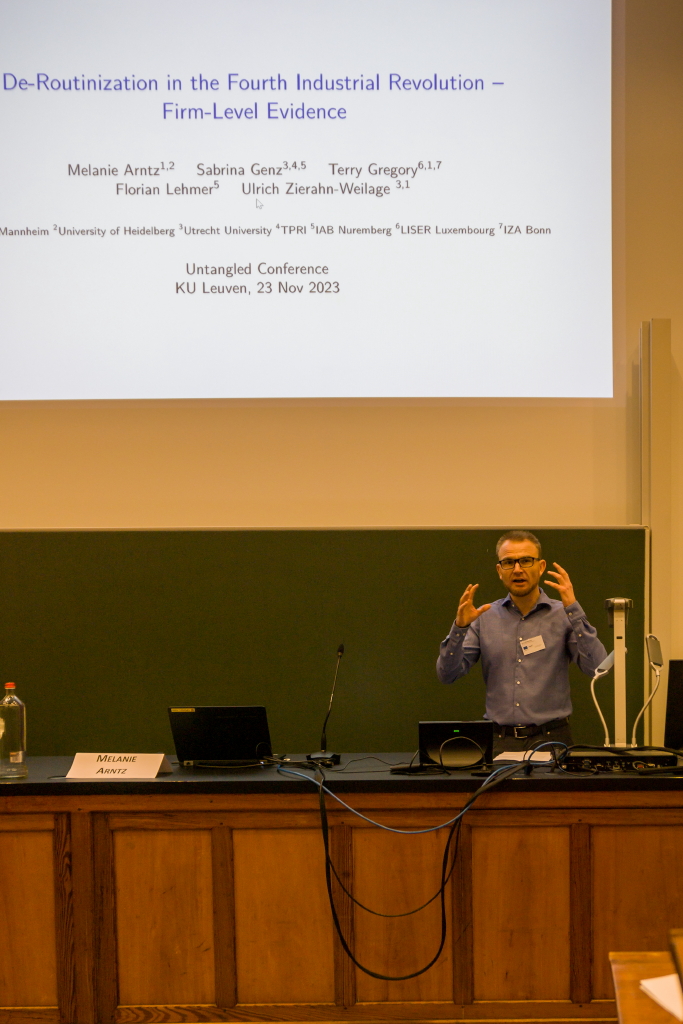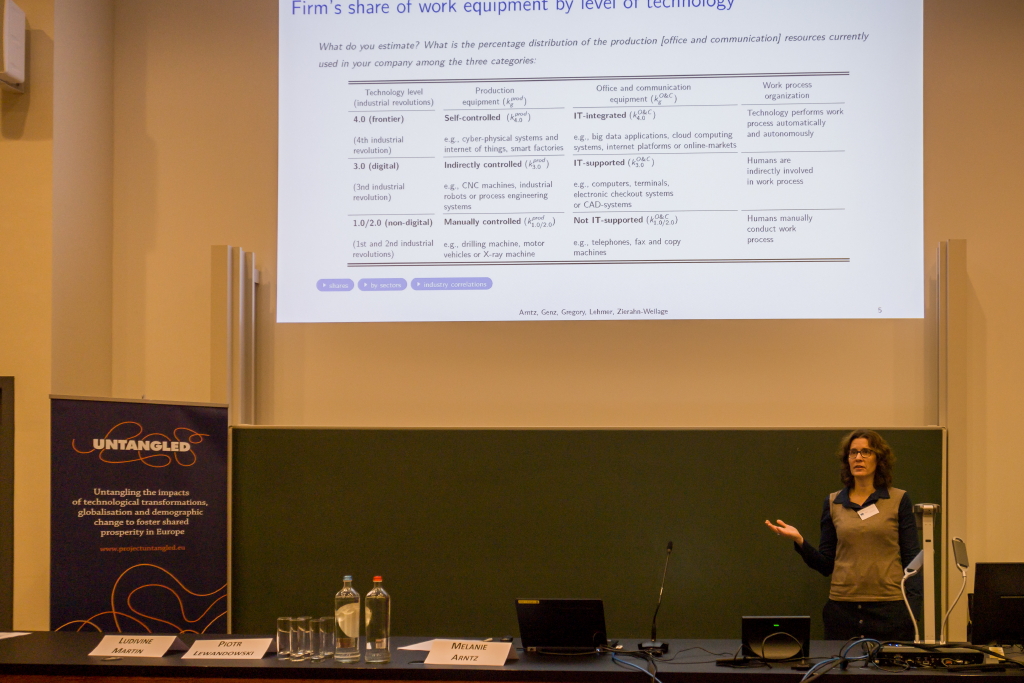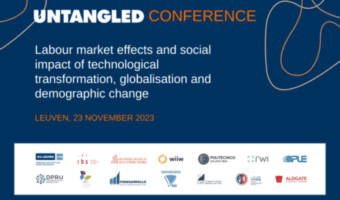Karol Madoń presented during the Untangled meeting the results of the study „The Role of Global Value Chains for Workers’ Tasks and Wage Inequality”, co-authored by Piotr Lewandowski (IBS) and Deborah Winkler (World Bank). The study assesses the relationship between participation in global value chains and routine intensity of jobs and its contribution to within-country wage inequality in countries at different development levels. Participation in GVCs contributes to lowered wage inequality in most countries covered in the study but not in top high-income countries.
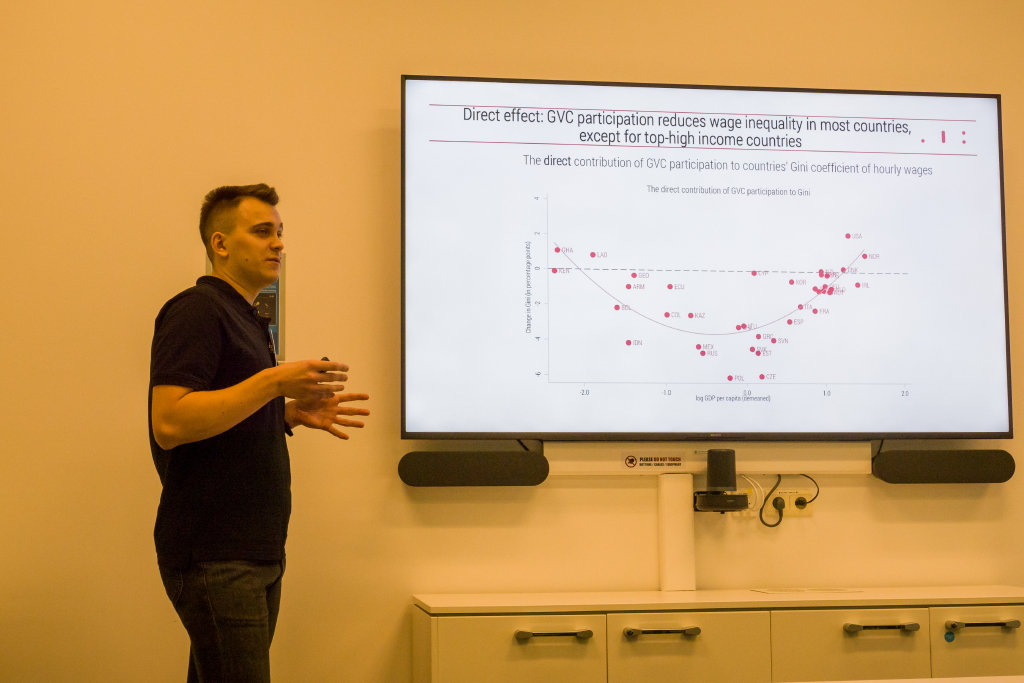
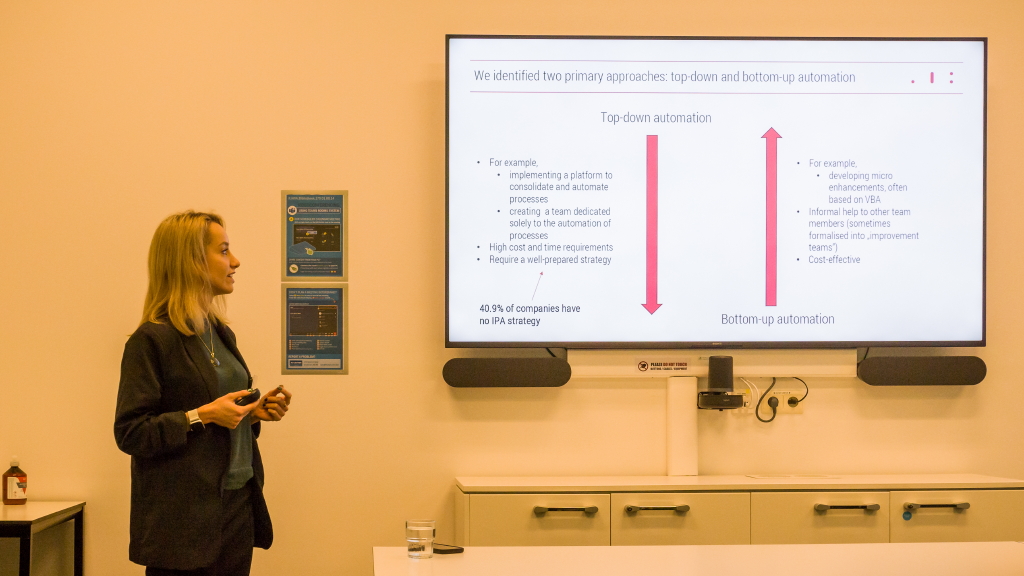
Zuzanna Kowalik presented an article titled “Automation in Shared Services Centres: Implications for Skill and Autonomy in a Global Organization.” Co-authored by Piotr Lewandowski (IBS), Maciej Grodzicki (Jagiellonian University), and Tomasz Geodecki (Krakow University of Economics), the article is grounded in a qualitative study conducted across four shared services centres (SSCs). The study evaluated the impact of automating simple tasks (commonly called routine tasks) on the workers’ job quality.
The study’s findings revealed that automation in shared services centres does not eradicate the role of human labour. Instead, it enhances it by eliminating the most monotonous tasks. Moreover, it elevates employee autonomy, affording them greater space for creativity and critical thinking. In the context of automation, employees are given the opportunity to acquire new skills, facilitated by the organic, albeit occasionally chaotic, nature of the automation process.
Nevertheless, the positive influence of automation on the quality of work in shared services centres is primarily attributable to the limited availability of highly qualified workers in the market. As a result, companies vying for these specialised professionals extend greater opportunities for skill development.
The Untangled Conference also included a keynote lecture. Melanie Arntz (ZEW) presented her research on the de-routinisation trends in Germany.
